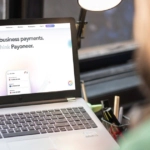How to hire contractors in Singapore
Read our step-by-step guide on how to hire and pay contractors in Singapore legally and efficiently, complete with compliance tips from Payoneer WFM.

Looking to expand your team with the very best global talent? When you hire contractors in Singapore, you stand to benefit from a highly educated, English-speaking workforce located in the heart of Asia’s business hub.
What’s more, by hiring workers as contractors, you tap into their professional expertise for quick business requirements.
There are lots of benefits to hiring contractors in Singapore. But before you start searching for talent, you need to understand how to hire efficiently and legally. Failure to abide by Singapore employment law can lead to penalties and fines.
At Payoneer, our workforce management platform takes the hassle out of hiring Singapore contractors. Here, we share our expert knowledge of how to legally hire and pay contractors in Singapore.
How to hire contractors in Singapore
If you’re looking to hire contractors in Singapore, you first need to understand the difference between a “contractor” and an “employee”, because failure to do so can lead to fines and penalties.
Familiarize yourself with local labor laws, so you know what your contractors are entitled to, and finally find and hire contractors to benefit from the best talent in Singapore.
Let’s take a look at those steps in more detail.
1. Understand contractor vs. employee classification
To hire contractors in Singapore, your team needs a solid understanding of classification laws, labor context, contractor sourcing, and contract requirements. So, let’s define “employee” and “contractor” in Singapore.
Independent contractors in Singapore are classified as workers who:
- Are typically hired for a project that has an end date
- Are paid on a project basis. They invoice for their work and are paid when a project is complete.
- Provide their own equipment and tools
- Have autonomy over when and how they do their work
Employees, on the other hand:
- Are paid at regular intervals by your company
- Receive the equipment and tools they need to do their work from your company
- Have defined work hours and responsibilities
- Are employed for an indefinite period
Correctly classifying Singapore contractors is essential. There are hefty fines and potential jail time for companies that misclassify their workers.
2. Understand local labor laws
You also need to understand local labor laws and the Employment Act when you hire contractors in Singapore.
While these laws aren’t necessarily applicable to contractors, it helps to know what Singaporean employees are entitled to when hiring any type of worker for your company.
- Minimum wage: Singapore doesn’t have a statutory minimum wage for the majority of workers. However, selected low-paying sectors — like cleaning and security — are subject to a minimum wage, and the National Wages Council (NWC) sets salary guidelines.
- Working hours: A 44-hour week is standard. Maximum hour work regulations in Singapore don’t cover employees earning more than SGD 2,600, managers, or executives.
- Public holidays and annual leave: Employees in Singapore typically get 14 days of paid annual leave per year. There are also 11 paid public holidays.
- Employee rights: Singaporean employees are protected from discrimination and harassment in the workplace and against wrongful dismissal. Employers are also obliged to protect employees’ personal information.
- Contract terms: Employers don’t need to provide a written employee contract, but they must provide employees with a written description of their primary responsibilities.
3. Find and hire contractors
When looking for Singapore contractors, you need to know the best places to find the best talent. This means posting your job ads on LinkedIn, Singapore Indeed, and local job boards like MyCareersFuture, JobsDB, and Jobstreet.
Once you’ve identified a selection of qualified contractors, ask them to share references and relevant experience in a similar role. Then, conduct interviews to ensure you can work well together. Remember to ask for their rates and discuss terms.
When you find the right contractor for your project, write a contract that includes the scope of work, start and end dates, and a payment schedule, taking into account the guidelines for paying contractors in Singapore.
How to pay contractors in Singapore
To pay contractors in Singapore, you need to determine the best payment process, whether by wire transfer, bank transfer, check, or an online platform like Payoneer Workforce Management (WFM). And while you won’t be liable for a contractor’s tax payments, you still want to ensure your contractors are taking responsibility for filing and paying their own taxes.
1. Determine how to pay
You generally wait for an invoice before paying your international contractors. You can then pay Singapore contractors by:
- Wire transfer: Quick, but comes with hefty fees.
- Bank transfer: Secure, but often incurs high exchange rates.
- Check: Safe, but the money is slow to arrive.
- Money order: Easy to track, but you can only transfer small amounts.
- Digital payment: Simple but prone to security breaches.
- Online platform: Comes at a fee but simplifies the process of paying and managing internal contractors.
Explain to your contractor which payment method you use so they know what to expect.
2. Ensure your Singapore contractors have the right tax information
Independent contractors in Singapore who earn more than $20,000 per year have to file and pay their own taxes. They can claim business expenses against their income to lower their tax bill and are required to declare their income to the Inland Revenue Authority of Singapore (IRAS). They need to keep all records of income and expenses for the previous five years of business.
3. Pay your Singapore contractor
Finally, you can pay your Singapore contractor. Just keep an eye out for potential fees and currency conversion costs, depending on your chosen payment method.
Workforce management platforms, like Payoneer WFM, make it easy to pay contractors in Singapore and the rest of the world.
Why Payoneer WFM is the easiest way to hire and pay contractors in Singapore
Payoneer WFM is a platform that helps companies employ independent contractors and full-time employees in 160+ countries, without the complexities of setting up a local legal entity.
Our unified platform allows you to:
- Pay contractors on time in 70 currencies
- Automate and simplify contractor expense tracking
- Manage contractor benefits, background checks, and more
From fast onboarding to multi-currency payroll and automated payments, Payoneer WFM has everything a business needs to hire, pay, and manage their global team.
Singapore contractors FAQs
What is an independent contractor in Singapore?
An independent contractor provides services to a company, usually over a short-term project.
Contractors are different from employees because they aren’t entitled to benefits, like paid leave, sick days, and employee Central Provident Fund (CPF) contributions. Contractors provide their own equipment and tools and choose how and when to complete the work agreed to. Independent contractors can be hired either as contractors or through an Employer of Record (EOR).
Do you need to withhold taxes when paying contractors in Singapore?
No, you don’t need to withhold taxes when paying contractors in Singapore. They’re classed as self-employed, so are responsible for declaring income, paying their own tax, and keeping the required financial records.
What are the labor laws in Singapore for contractors?
Independent contractors in Singapore don’t have the same labor law rights as employees. As self-employed individuals, they — and not the company they are working for — are responsible for their own health and safety. They aren’t entitled to sick pay or overtime pay, and aren’t protected against unfair dismissal.
That said, a company may offer specific benefits to independent contractors to attract the best talent. But it’s important that contractors aren’t treated as employees, otherwise, companies risk misclassification and the associated fines and penalties.
Disclaimer
Nothing herein should be construed as if Payoneer Inc. or its affiliates are soliciting or inviting any person outside the jurisdiction where it operates/is licensed to engage in payment services provided by Payoneer Inc. or its affiliates, unless permitted by applicable laws. Any products/services availability are subject to customer’s eligibility. The availability of this product is not guaranteed and may vary. Not all products/services are available in all jurisdictions in the same manner.
Related resources
Latest articles
-
A guide to starting a business in Estonia as a non-citizen
If you’ve thought about opening a new business somewhere with plenty of government support, expanding your business into the EU, or making it easier to work as a contractor or digital nomad anywhere in the European Economic Area (EEA), you should think about starting a business in Estonia…
-
How to simplify payment operations with Payoneer’s automation feature
Save time, reduce costs, and eliminate errors with Payoneer’s new payment automation feature.
-
How to prevent online payment fraud as an SMB
Prevent online payment fraud by overcoming challenges like phishing, fake accounts, and account takeovers (ATO) with enhanced security features from Payoneer.
-
Amazon Fees & Policy Updates 2024
Amazon regularly makes planned updates to fees and policies that may impact Payoneer customers that sell on Amazon. To keep Payoneer customers informed regarding upcoming and past updates, we’re providing a list of known changes to Amazon fees and Policy updates.
-
How Payoneer’s target exchange rate feature will help you save more on bank withdrawals
Boost savings with Payoneer’s target exchange rate feature.
-
Navigating phishing attacks: A guide to keeping your Payoneer account secure
Keeping your funds safe is our number one priority at Payoneer. While phishing attempts can happen, arming yourself with knowledge is key to keeping your data and money safe














